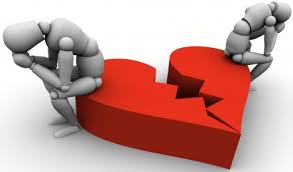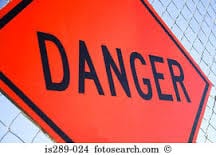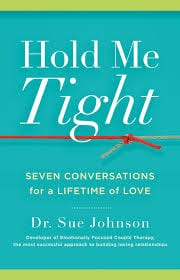“We Don’t Need to Go to Therapy!” Dr. Carol Ann Conrad, EdD
I make a living as a counseling psychologist, and I do alright. However, I think I would be making a LOT more money if I had a dollar for every time I heard a client say in my office that “my husband said he didn’t think we needed to come to therapy.” Or “My wife made it clear early on what she thought about going to therapy, so we never went until now (15 years later!).” Something of this version is not uncommon at all to hear, as that person is now sitting in my office broken-hearted when their spouse left them, or they come together when their relationship is dangling by a thread.
Myths About Couple Therapy
I find it very unfortunate and disconcerting that negative views of therapy, either individual or couple/family therapy still abide today. Often there is a lot of shame around the fact that someone is struggling to the point that they are reaching for solutions, and this is most saddening to me. Our early colonizing Americans prided themselves on “rugged individualism” stemming from our early Euro-American ancestors and pioneers. “Do it on my own” or “figure it out for yourself” or “If it is to be it’s up to me” are some milder spoken phrases that really imply “suck it up, and deal with it” or worse”quite whining” when we find ourselves in emotional pain or distress individually or as a couple. These phrases whether spoken to us by others, or internally said to ourselves, inflict more shame and pain on top of our already hurting hearts and lives. Some of the sad myths that circulate about attending therapy keep us from getting the help we need in a timely way, and can increase the pain we’re already feeling. Some of those myths are:
If we just ignore it, it will go away.
This is just not true, especially in the case of couple’s therapy. If there are continual negative patterns in your relationship where you feel hurt, ignored, not good enough, unhappy, disconnected and lonely, these are not likely to go away, but often become even bigger and more painful over time. Time does not heal all wounds, when there is an infection in the body, time makes it worse. A LOT worse, and can kill you if you don’t get treatment. In the case of a marriage, perceptions of our partner can become narrower and narrower in a negative view, as John Gottman, a foremost relationship researcher coined it, Negative Sentiment Override, can take over and everything in the relationship begins to be colored as if our partner is our enemy and doesn’t love or care about us. This is a dangerous place to be, and the longer it goes on it can be the beginning of a death keel to the relationship, or can take a very long time to recover from even with help.
We don’t need therapy, we can figure it out on our own
Sometimes, this may be true. Sometimes we can have stressful things happen in an otherwise connective relationship. If you and your partner have a history of being able to turn to each other, soften and repair so you can find your way back to a loving and connective relationship–then you’re right–you might not need therapy. However, if you don’t have a history of being able to repair, to approach each other with tenderness and kindness, giving each other the benefit of the doubt and being able to share your hearts with each other–stress can and will only make things worse between you over time. What I often see in my practice is that couples managed their relationship okay until life stressors intensified and the couple didn’t know how to turn to each other for support and comfort. This is when the couple begins to struggle. They lose the ability to keep their emotional balance together and their relationship can topple into distress and can flounder for many years. The statistics say on average a couple waits 6 years after things go south before they seek treatment! Getting help instead of just living with it is vital. It is also very, very important to get a trained couple’s therapist who can help you and your partner move through your stuck places, reconnect, and heal.
You’re the one that needs to go to therapy, there’s not a problem with me!
I see a fair amount of individuals starting out in therapy with me, but usually by the end of the first session they tell me that the real reason they are there is to fix their relationship! It’s really hard to do couple’s therapy with only one partner, or make anything between you and your partner better without both of you being there. If there is a problem between you and your partner, just one of you coming is not going to fix it. No matter how thin the pancake, it ALWAYS has two sides! If your relationship isn’t working, if your partner is complaining about how they feel the need to get therapy together, listen to them and respond!! One of the saddest things I hear more often than I’d like is, “my wife wanted to go to therapy years ago, and I told her she could go but I’m not!” This said by a man whose wife has filed for divorce or separation and he’s in therapy–by himself.
 Or the couple that finally makes a quick stop at my office as a way to say “we did everything, even therapy and it didn’t work” just before the each land in a lawyer’s office for a divorce. This approach is more like avoiding preventative screenings and denying obvious symptoms for years until late stage 4 cancer has completely metastasized and then saying treatment didn’t work! You can wait too long to get help and sometimes the relationship won’t recover.
Or the couple that finally makes a quick stop at my office as a way to say “we did everything, even therapy and it didn’t work” just before the each land in a lawyer’s office for a divorce. This approach is more like avoiding preventative screenings and denying obvious symptoms for years until late stage 4 cancer has completely metastasized and then saying treatment didn’t work! You can wait too long to get help and sometimes the relationship won’t recover.
If we go to therapy then we REALLY are screwed up!
To this myth I ask, who is sickest, those who go to a doctor, or those who don’t? If you have a broken arm or a broken bone does it mean you’re messed up to go to a doctor? If you have a persistent fever and go to a doctor for medication, does it mean you’re weak and something is terribly wrong with you? Yet, somehow in our culture we have a lurking belief that to see a therapist means you are weak and terminally flawed and should hang your head in shame or hide it from the world that you need help! There is no shame in getting help, we are all in this struggle of life together and life can get messy and difficult! Many, many couples struggle to feel a sense of security between them and need therapeutic intervention to find their way. It doesn’t mean you are weak to seek help, quite the opposite. Only the truly courageous and brave are willing to push past the stigma that is unfortunate in our society, and seek help for their struggles.
Get Help, Get it Early
I can’t emphasize enough how important it is when your relationship is floundering to get help, and get it before little things become big things. When I have a young newlywed couple come to me and talk about the struggles they are having with their relationship, I applaud them! While they still have positive sentiment in their relationship taking care of those negative patterns before they become deeply rutted and fixed negative dynamics between them is so important! On the other hand, I have many, many older couples, sometimes in their late 40’s, 50’s, or even 60’s, come to me after a life-time of deeply rutted negative and fixed patterns of interaction with each other. They love each other, but they don’t know how to connect and their bond is very damaged. It can take years to help them repair and create love again in their relationship.
I’m an avid gardener. I love to plant fruit and vegetables and harvest fresh homegrown food from the labor of my own hands. The one thing I don’t like about gardening, however, is pulling weeds. One year I was extra busy and avoided weeding the garden for several weeks at the beginning of the growing season. What had been just a few weeds that could have easily been handled in a few minutes, had spread and began to completely overrun my garden! The weeds were stunting the growth of my newly planted tenderlings by taking up the water supply and invading the roots of my poor little plants that were struggling to survive. It took me half a day to get the weeds under control while. Had I been attentive to my fledgling garden just for a few minutes every other day things would have never gotten to that point and threatened the survival of my garden. The analogy applies to our relationships. Early prevention and repair is essential, and if a couple is unable to make that repair themselves, they need to find a trained and skilled therapist to help them learn how to repair.
Caveat Emptor: Find A Trained Couple’s Therapist
In my master’s program before I began practicing therapy, I had one course on family treatment. Yet, I was told after I graduated I could hang my “shingle” and advertise for individual as well as “couple” therapy without more training. This is not an uncommon thing for those coming out of grad school programs unless they are specifically a marriage and family therapist, which I was not. I didn’t have the training nor skill to treat couple’s back then and fortunately, I refused to see them until I got more training! Doing couple’s treatment is VERY different than working with individuals, and requires a different skill set. Learning to work effectively with couples takes a lot of training and experience! In fact, working with someone who does not have very specific training to do couple’s therapy can make matters worse. As Dr. Bill Doherty says, therapy without a well trained therapist can actually be DANGEROUS!! Yikes!!
 We don’t want to make things worse when things are already bad! Yet, indeed well-intentioned but untrained in the nuances of working with couples, the untrained therapist can send a couple over the edge into what Doherty calls, marital suicide! However, there is a solution to this problem!
We don’t want to make things worse when things are already bad! Yet, indeed well-intentioned but untrained in the nuances of working with couples, the untrained therapist can send a couple over the edge into what Doherty calls, marital suicide! However, there is a solution to this problem!
Emotionally Focused Therapy for Couples
We are so very fortunate today, as it was but just a few decades ago we didn’t have any where near the amount of knowledge or research and training we do today to help couples and families. Dr. Sue Johnson found in her doctoral program that the literature was woefully lacking on how to approach couples and families in a way that really got to the core of the matter. Over the course of the next 30 years not only did she discover a map for how to help couples from distress to resolution, she published myriads of articles backing up her findings. She and others continue to research and assert Emotionally Focused Therapy (EFT) as the most empirically validated and successful treatments for couples and families that exists today. When engaged with a trained and certified EFT therapist, between 70%-90% of couples completely resolve their distress and/or get better, and have lasting change that holds up over time. Their relationships continue to improve for years after treatment is over! This is unparalleled success in the world of couple’s therapy where the statistics of treatments other than EFT have at most a 35% success rate and that is not lasting. Follow-up studies with other treatments show a decline in the couple’s relationship with time.
The reason why EFT is so successful is because we finally have cracked the code to love and discovered the real root of couple distress! Click Here to see a video of Sue talking about this form of therapy. Because of all this amazing research and the efforts of Sue Johnson, we know what causes distress between couples, we know what repairs it, and how to do that within the session! Even better, Dr. Johnson has created an International Centre for Excellence in Emotionally Focused Therapy that offers extensive training and certification in this form of treatment! EFT continues to spread far and wide and many, many therapists are gaining the training and skills to duplicate these amazing statistical successes in their own home offices.
Hold Me Tight®
In addition to the trainings and certification programs, Sue Johnson has created a program or workshop for couples that therapists offer around the globe. Hold Me Tight® workshops are based on her best selling book

by the same name, and are life-changing for many couples. She also has a New York Best Selling book that I personally recommend, Love Sense. Couples come for two fun-packed days of educational and experiential time with their partner where they learn a new way to relate and connect with each other. Instruction, video examples, and seven conversations the couple have with each other during the two days are the essential components of these relationship-changing workshops. Therapists trained in EFT who volunteer come and assist at the workshop to give you and your partner excellent support in the conversations, as needed. A Hold Me Tight® workshop is a great way for a couple to come, learn together, experience a difference in their relationship, and discover if they need further therapeutic support after attending. If requested, referrals to therapists in the area that are trained in EFT can be made. Hold me Tight® Workshops are held all over the country, check out the link to find one closest to you.

Hold Me Tight® Tri-Cities
Hold Me Tight® Tri-Cities is held bi-annually in the beautiful Richland, Washington. Dr. Carol Ann Conrad, EdD a certified EFT therapist and Supervisor with over a decade of experience treating couples and families, has been leading these workshops locally for several years. Come and have a great time with your partner whether you just want to enhance what you already have in your relationship, need some help in finding the connection and spark again, or are trying to decide to stay together, this workshop is for all couples. Don’t wait–nothing is more important than your relationship and your family. They are worth investing your time and money!

